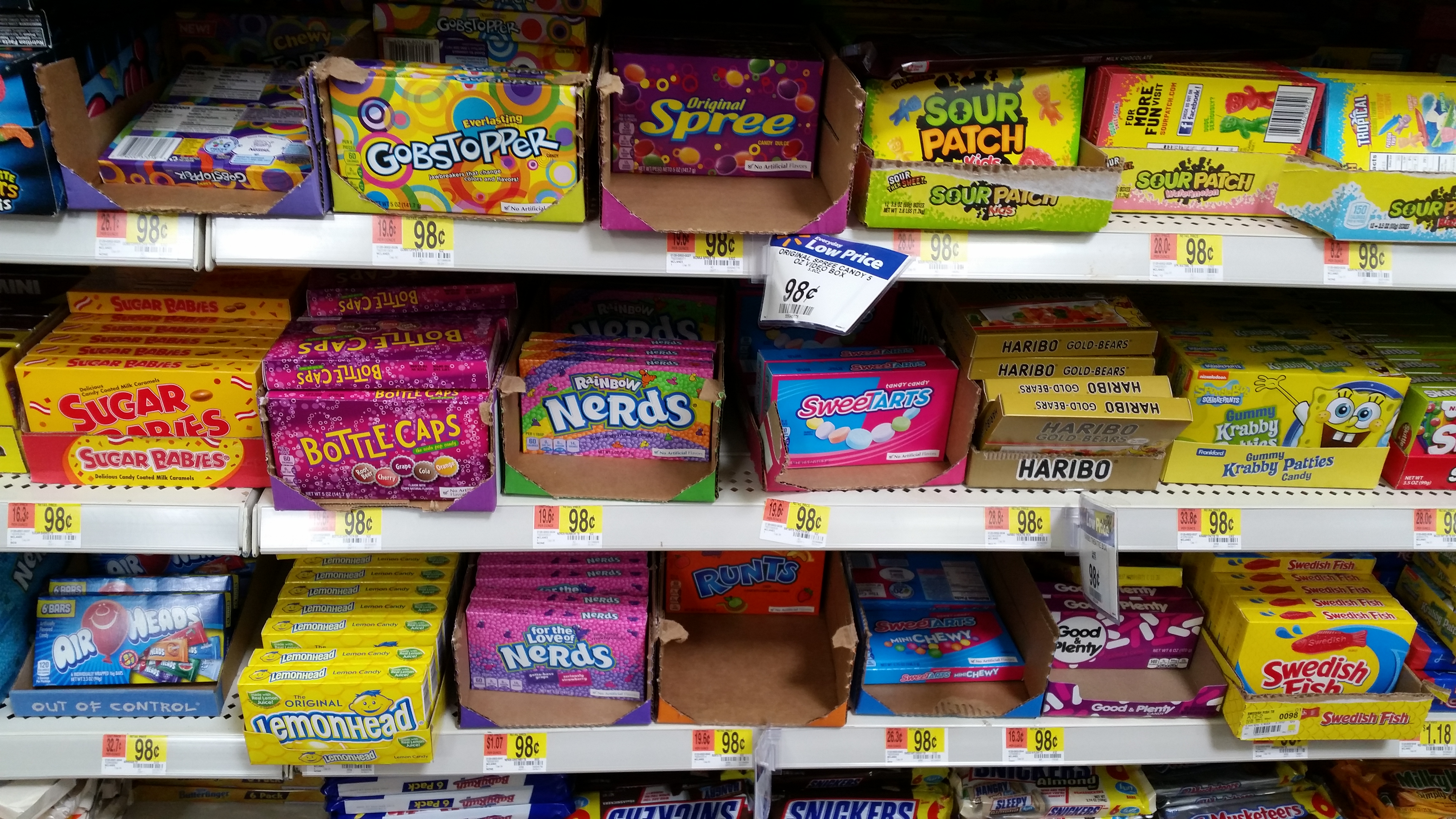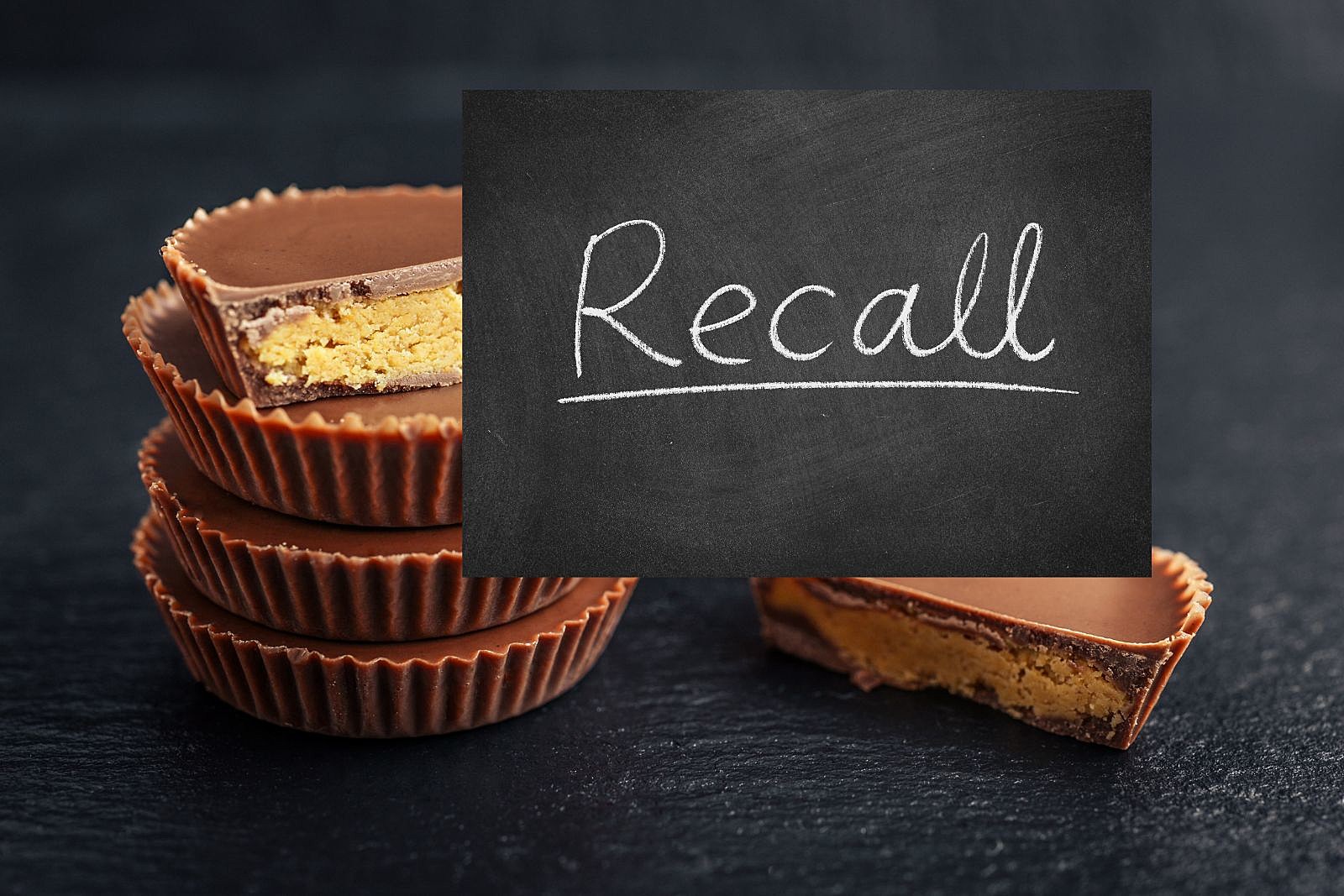Walmart Recall History

Walmart, being a global retail giant, has a history of issuing product recalls, including candy items, to ensure the safety of its customers. These recalls are often initiated due to potential health risks associated with the products, such as the presence of undeclared allergens or foreign objects.
Timeline of Candy Recalls
The following timeline provides a summary of significant candy recalls initiated by Walmart in the past five years:
- 2018: Walmart recalled various chocolate products due to the potential presence of undeclared milk ingredients. This recall was triggered after several consumers reported allergic reactions after consuming the affected products.
- 2019: A recall was issued for a specific brand of gummy candies due to the potential presence of undeclared peanuts. This recall was important as peanuts are a common allergen, and the presence of undeclared peanuts could pose a serious health risk to individuals with peanut allergies.
- 2020: Walmart recalled a batch of hard candies due to the presence of foreign objects, specifically small pieces of metal. This recall was crucial as ingesting metal fragments can cause serious internal injuries.
- 2021: A recall was issued for a popular brand of chocolate-covered pretzels due to the potential presence of undeclared milk and soy ingredients. This recall highlighted the importance of accurate labeling and the potential risks associated with undeclared allergens.
- 2022: Walmart recalled a specific type of gummy candies due to the potential presence of Salmonella contamination. This recall was particularly concerning as Salmonella is a serious foodborne illness that can cause severe gastrointestinal symptoms.
Impact of Recalls on Walmart’s Reputation and Consumer Trust
Walmart’s reputation and consumer trust can be significantly impacted by product recalls. While recalls are necessary to protect public health, they can also lead to negative publicity, loss of customer confidence, and financial losses. In the case of candy recalls, consumers may become hesitant to purchase candy products from Walmart due to concerns about safety and quality. To mitigate the impact of recalls, Walmart typically takes proactive measures such as issuing public announcements, cooperating with regulatory agencies, and offering refunds or replacements to affected customers.
Safety Concerns and Regulations: Walmart Recalls Candy

Candy production and distribution, like any food production process, present inherent safety concerns. These concerns stem from the potential for contamination, adulteration, or mislabeling, which can lead to various health risks for consumers. Regulatory bodies play a crucial role in ensuring the safety of food products, including candy, by setting standards, conducting inspections, and enforcing regulations. Companies like Walmart, as distributors of candy, have legal and ethical obligations to prioritize consumer safety and take prompt action in case of product recalls.
Role of Regulatory Bodies
The Food and Drug Administration (FDA) is the primary federal agency responsible for ensuring the safety of food products in the United States. The FDA establishes and enforces regulations for food production, processing, packaging, and distribution. This includes setting standards for ingredients, manufacturing practices, and labeling requirements for candy products. The FDA also conducts inspections of food facilities to ensure compliance with these regulations.
Safety Concerns in Candy Production
- Contamination: Candy production involves handling ingredients and processing in various stages, making it susceptible to contamination by bacteria, viruses, parasites, or other harmful microorganisms. Inadequate sanitation practices, improper storage, or cross-contamination during production can lead to the presence of these contaminants in candy, posing health risks to consumers.
- Allergens: Candy often contains ingredients that are common allergens, such as nuts, milk, eggs, soy, and wheat. Improper labeling or cross-contamination during production can lead to accidental exposure to allergens for individuals with sensitivities, potentially causing severe allergic reactions.
- Adulteration: Adulteration refers to the intentional or unintentional addition of substances to food products that are not declared on the label or are harmful to consumers. In the case of candy, adulteration could involve the use of unauthorized ingredients, coloring agents, or preservatives that may pose health risks.
- Mislabeling: Mislabeling of candy products can occur due to errors in labeling information, such as ingredient lists, nutritional values, or expiration dates. This can mislead consumers about the product’s contents and potentially lead to health risks, especially for individuals with allergies or dietary restrictions.
Legal and Ethical Obligations of Companies
Companies like Walmart, as distributors of candy, have a legal and ethical responsibility to ensure the safety of the products they sell. They are obligated to comply with all applicable regulations set by the FDA and other relevant authorities. This includes ensuring that the candy they distribute meets safety standards, is properly labeled, and is free from contaminants or adulterants.
In case of a product recall, companies are legally obligated to promptly inform consumers about the recall, provide instructions on how to return or dispose of the recalled product, and offer appropriate compensation or refunds. They also have an ethical obligation to act swiftly and transparently to protect consumer health and maintain public trust.
Consumer Impact and Response

Candy recalls can have a significant impact on consumers, affecting their health, legal rights, and overall trust in the brand. Understanding the potential consequences and consumer reactions is crucial for both businesses and consumers.
Potential Consequences of Consuming Recalled Candy
The consequences of consuming recalled candy can vary depending on the nature of the recall and the individual’s sensitivity. However, potential health risks can include:
- Allergic Reactions: Recalls often occur due to undeclared allergens, which can trigger severe reactions in sensitive individuals.
- Foodborne Illness: Contaminated candy can lead to foodborne illnesses like Salmonella or E. coli, causing symptoms like diarrhea, vomiting, and fever.
- Choking Hazards: Recalls involving small, hard candies can pose choking hazards, particularly for young children.
Beyond health risks, consuming recalled candy can also have legal ramifications. Consumers may be able to pursue legal action against the manufacturer or retailer for damages resulting from health issues or financial losses.
Consumer Reactions to Walmart’s Candy Recalls, Walmart recalls candy
Consumer reactions to candy recalls can range from mild inconvenience to significant concern and anger. Here are some common reactions:
- Returning the Product: Many consumers choose to return the recalled candy to the store for a refund or exchange.
- Contacting Customer Service: Consumers may contact Walmart’s customer service to inquire about the recall, seek information about potential risks, or express their concerns.
- Seeking Medical Attention: If consumers experience adverse health effects after consuming recalled candy, they should seek immediate medical attention.
- Social Media Engagement: Consumers often share their experiences and opinions about recalls on social media platforms, potentially influencing other consumers’ decisions.
- Loss of Trust: Recalls can erode consumer trust in the brand, making them less likely to purchase products from the company in the future.
Consumer Response Table
The following table illustrates the different responses consumers might have to a candy recall:
| Response | Description | Example |
|---|---|---|
| Returning the Product | Consumers return the recalled candy to the store for a refund or exchange. | A customer returns a bag of recalled chocolate to Walmart for a full refund. |
| Contacting Customer Service | Consumers contact Walmart’s customer service to inquire about the recall, seek information about potential risks, or express their concerns. | A consumer calls Walmart’s customer service to ask about the recall and inquire about potential health risks associated with the candy. |
| Seeking Medical Attention | Consumers seek immediate medical attention if they experience adverse health effects after consuming recalled candy. | A customer who ate recalled candy experiences stomach cramps and diarrhea and seeks medical advice from their doctor. |
| Social Media Engagement | Consumers share their experiences and opinions about recalls on social media platforms, potentially influencing other consumers’ decisions. | A customer posts on Facebook about their experience with a recalled candy, warning others about the potential risks. |
| Loss of Trust | Consumers lose trust in the brand, making them less likely to purchase products from the company in the future. | A consumer who previously purchased candy from Walmart regularly decides to buy from a different store due to their negative experience with the recall. |
Walmart recalls candy – Yo, so Walmart just recalled a bunch of candy, which is totally a bummer, but at least it’s not like that time I got a McFlurry cup that was like, totally cracked. You know, like the McDonald’s cups meal deal?
Anyway, back to the candy, I guess it’s better to be safe than sorry, right?
Yo, so Walmart recalled some candy, like, totally lame. I’m not sure what’s up with that, but it’s making me think about the whole Israel-Iran news thing. Like, is it all just a big game of candy recall?
Who knows, man. Anyway, back to the candy thing, maybe I’ll just grab some chips instead.
